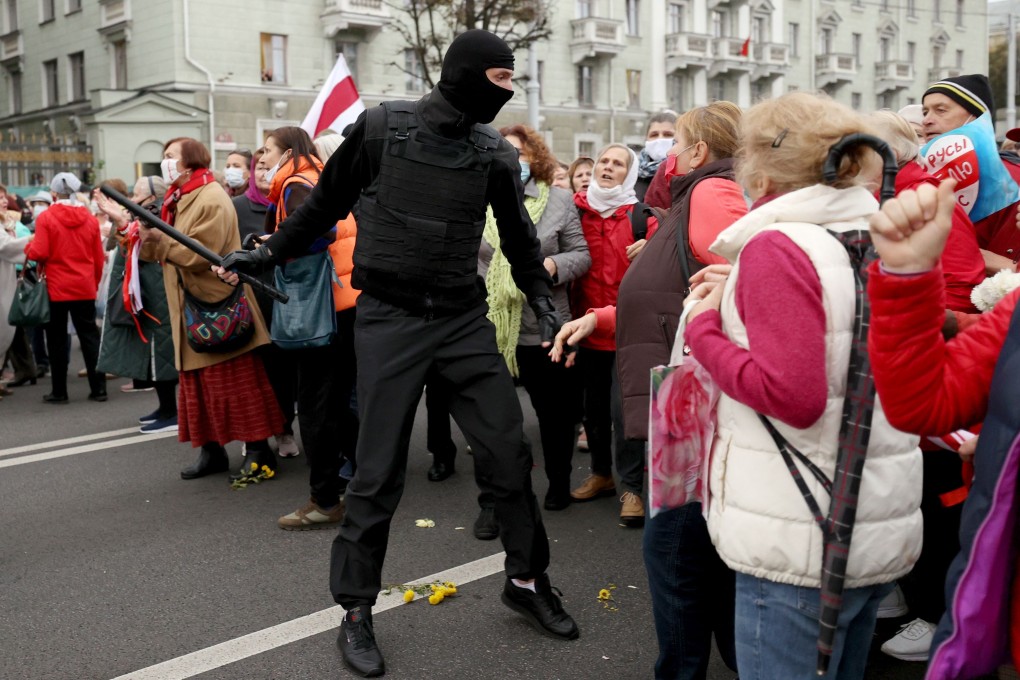Belarus police threaten to shoot protesters as pensioners join rallies
- Use of live firearms would mark a major escalation in the stand-off between strongman Lukashenko and protesters
- EU foreign ministers agreed to impose sanctions personally targeting the president

Belarus police have threatened to fire on protesters to break up demonstrations, in a sign that the authorities may be preparing even harsher tactics as the protests enter a third month.
Police detained over 700 people as protesters clashed with law enforcement on Sunday, the Interior Ministry said. The violence appeared to mark a shift from the largely peaceful weekly protests that started after a disputed August 9 election.
Unidentified men in balaclavas used stun grenades and pepper spray on people participating in a march of pensioners against the authorities on Monday, Tut.by website reported.
“The protests, which have shifted mostly to Minsk, have become more organised and extremely radical,” a spokesman for the Interior Ministry said. “Interior Ministry troops won’t leave the streets and will use special equipment and combat weapons if necessary.”
Police have so far only acknowledged using water cannon, rubber bullets and stun grenades to disperse the protesters.

03:35
Belarus protests enter ninth week, as President Lukashenko meets political opponents in jail
Belarus’s first deputy interior minister Gennady Kazakevich said stones and bottles had been thrown at police on Sunday by protesters armed with knives, who built barricades and set fire to tyres.